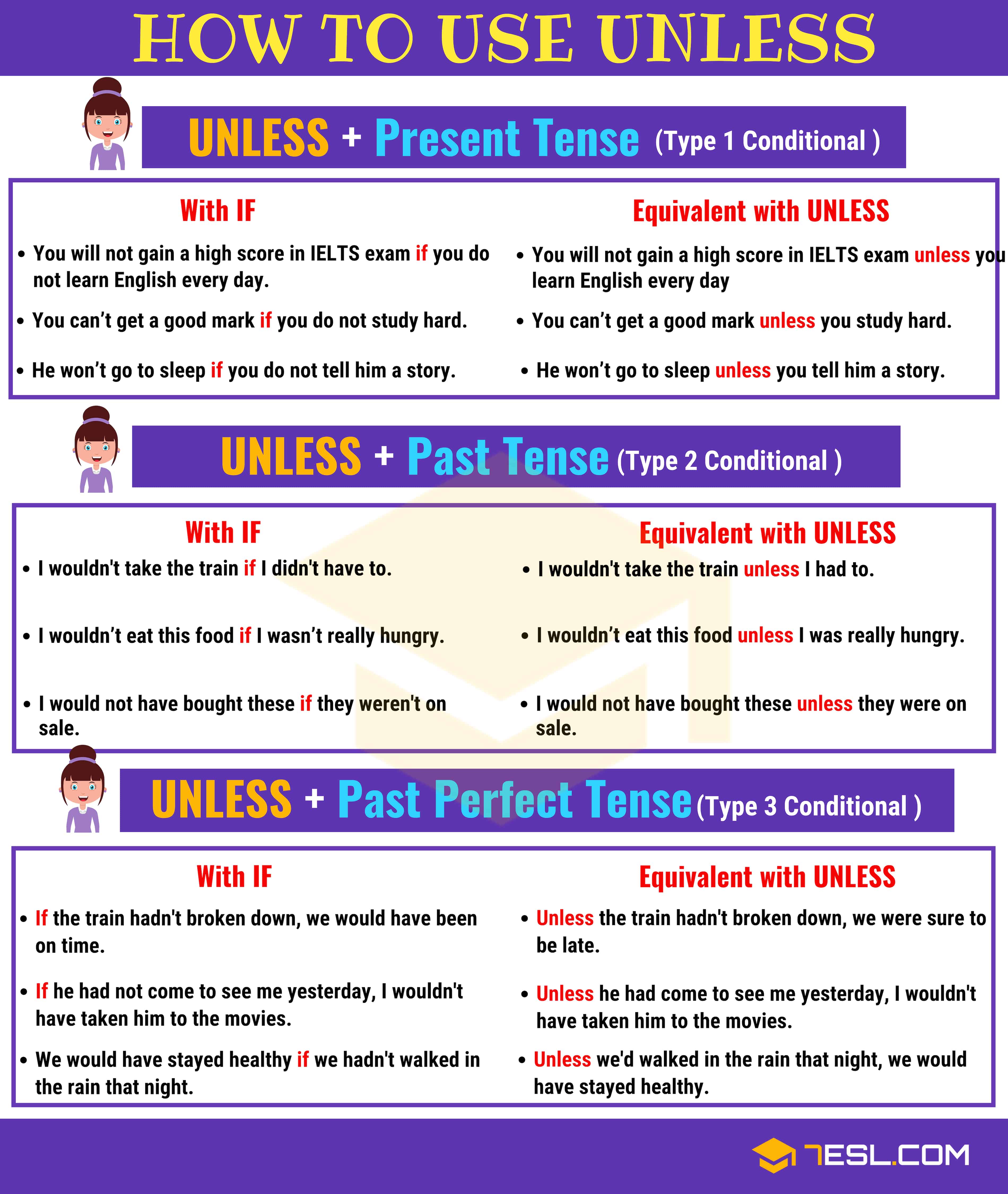How to Use UNLESS! Learn how to use Unless in English with useful grammar rules and example sentences.
Unless means if not. We use unless in conditional sentences instead of if not.
How to Use UNLESS
- Unless is similar in meaning to if not and can be used instead of if not in certain types of conditional sentences. Like if, unless is followed by a present tense, a past tense, or a past perfect tense.
For example:
You will not gain high score in IELTS exam unless you learn English every day. (You will not gain high score in IELTS exam if you do not learn English every day.)
He wouldn’t be late for the train unless he forgot his luggage. (He wouldn’t be late for the train if he did not forget his luggage.)
Unless I had walked in the rain last week, I wouldn’t have been sick. (If I had not walk in the rain last week, I wouldn’t have been sick.)
- We cannot use unless in questions:
What will you do if you do not pass this final exam? (NOT: What will you do unless you pass this final exam?)
- We don’t use will or would in the clause after unless:
Unless we leave now, we can be late. (NOT: Unless we will leave now, can be late.)
UNLESS – IF NOT| Image











0 Comments